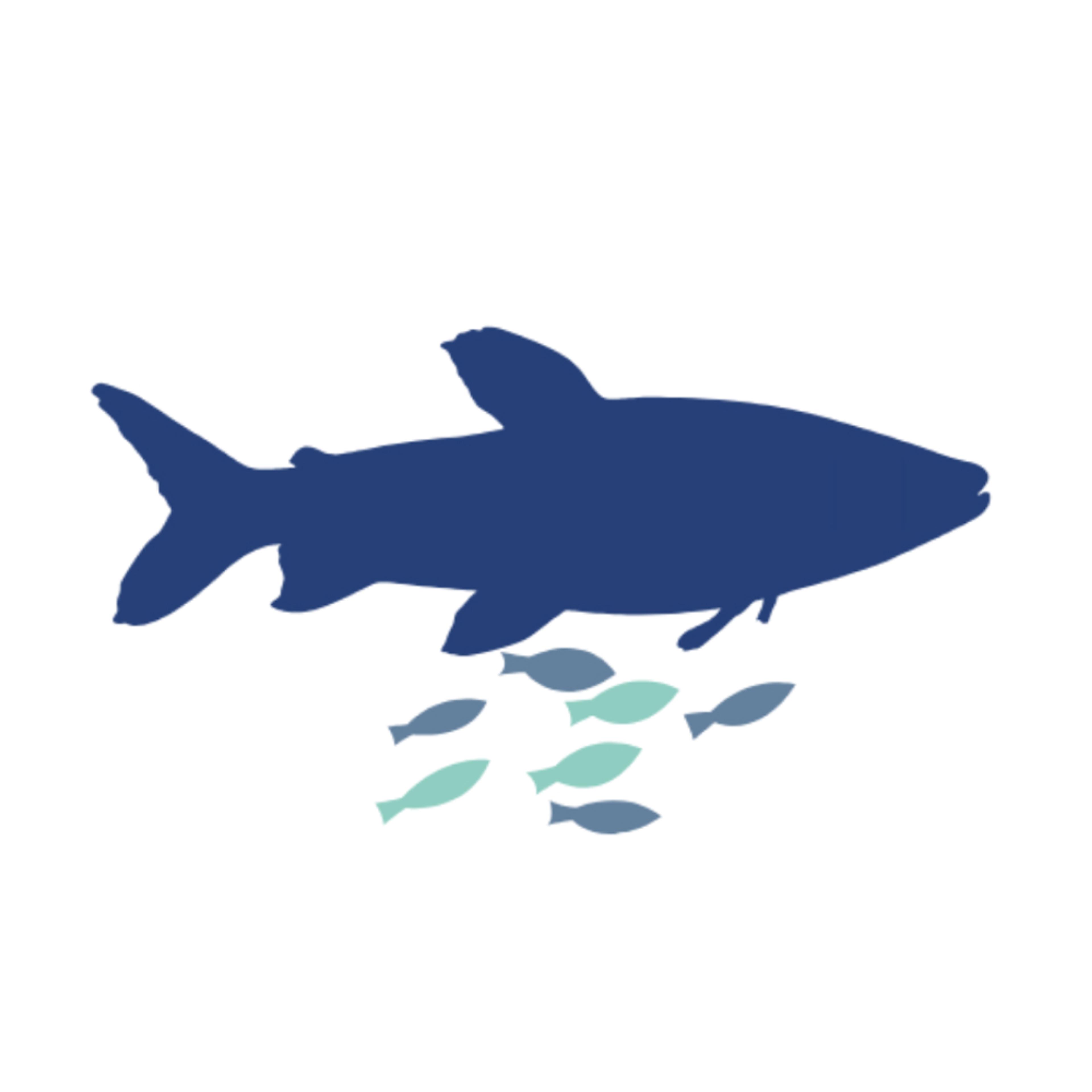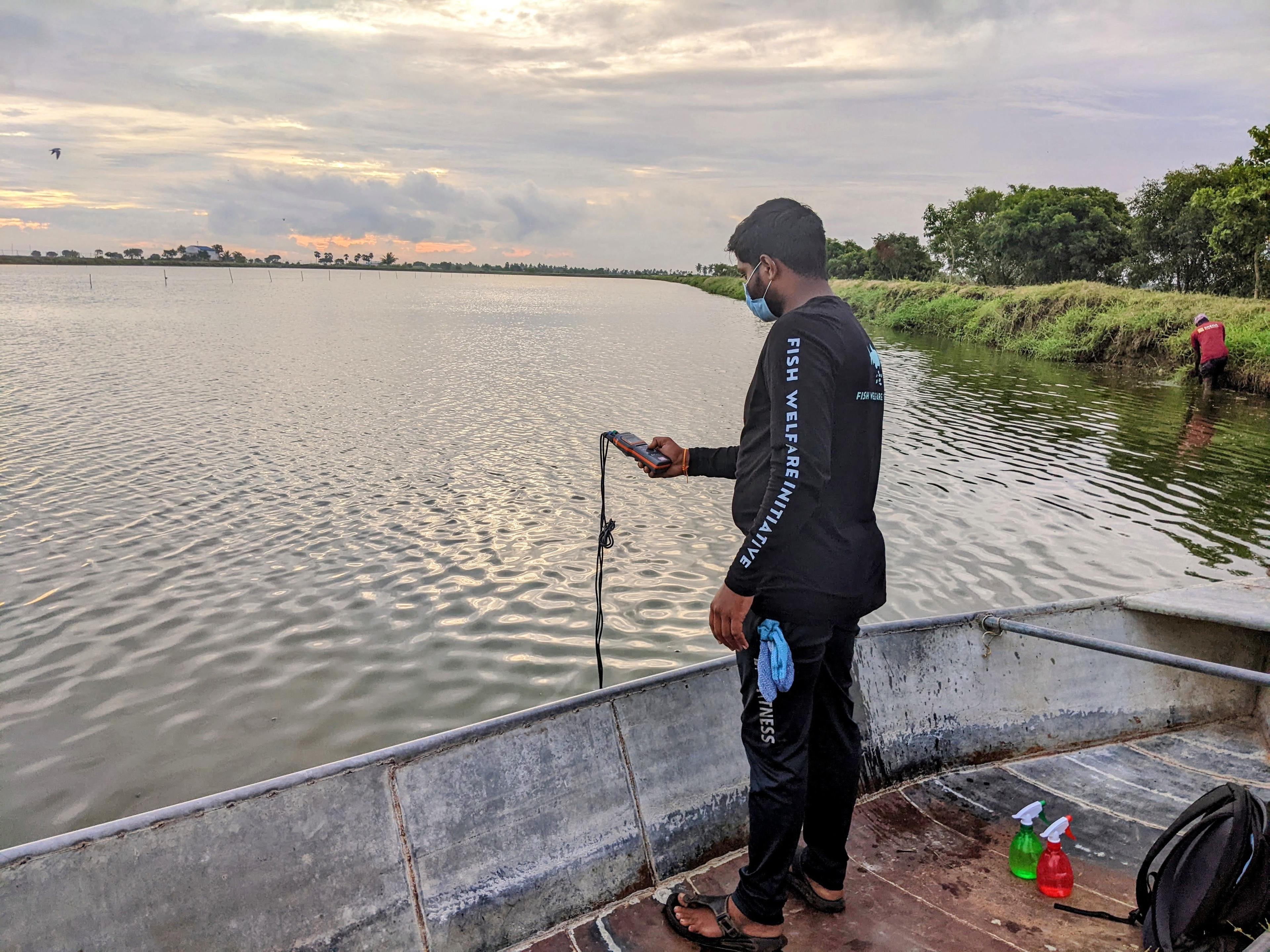
Fish Welfare Initiative
Farmed Fish Welfare Improvements
FWI Identifies and implements welfare improvements for farmed fish in priority contexts, particularly India.

Above: An FWI staff member collects a water quality measurement at one of the farms in FWI’s farm program in Andhra Pradesh, India.
What problem is Fish Welfare Initiative working on?
According to FWI, an estimated 73–180 billion fish are farmed for food each year, and fish farming (or “aquaculture”) is the fastest-growing food sector in the world. Farmed fish are often raised in poor conditions, with overcrowding, poor water quality, and slaughter via asphyxiation common causes of suffering to these animals.
Along with direct benefits to the fish themselves, better welfare could lead to improvements for industry, the health of society, and the environment.
What does Fish Welfare Initiative do?
Fish Welfare Initiative (FWI) reduces the suffering of farmed fish by researching and executing welfare interventions. It primarily works in countries in Asia, a region it has identified as particularly high-priority.
India is FWI’s main country of operation, and there it conducts the following work:
- R&D of new welfare interventions: FWI is currently investing heavily in R&D work to identify improved interventions, as it believes there are limitations in its current approach’s ability to scale to the level it intends.
- Working directly with farmers: Simultaneously, it is running a direct farmer outreach program, which works with about 170 farms as of November 2024. Farmers in this program commit to and implement lower stocking densities and improved water quality, and receive monthly monitoring visits from FWI staff.
Policy advocacy: FWI sends policy recommendations to various government agencies, and invests in relationship-building with policymakers and other parties who may enable it to scale. For more on FWI's policy work, see here, though FWI wishes to note that the policy opportunities it pursues change fairly regularly.
FWI has also completed smaller projects in China and the Philippines.
In addition to the direct benefits of the above work, FWI believes it has had significant impacts in other, harder-to-measure ways:
- Precedent setting: FWI brings the concept of fish welfare to many important stakeholders in policy, farming, corporations, and other stakeholders who have never considered it before. FWI’s team believes that this lays the foundation for future work.
- Research in unexplored areas: FWI is conducting some of the first welfare research on species farmed en masse, such as Indian major carp or grass carp.
- Movement building: FWI invests in Asia, a key region for the animal movement, both by hiring local staff (they have a local team of 15 in India) and by partnering with local organisations, such as People for Animals and Mercy for Animals India.
As of November 2024, FWI estimates that it has improved the lives of about 2.2 million fishes. It also believes that, with its ongoings investments in R&D, the vast majority of its impact lies in its future programming.
For more information about the value and the pros and cons of a donation to FWI, see its website's donation page or this 2023 EA Forum post.
What information does Giving What We Can have about the cost-effectiveness of Fish Welfare Initiative?1.
The impact-focused evaluator Animal Charity Evaluators (ACE) conducted a review of FWI's work, in which they recommended FWI as a Standout Charity. They have since removed FWI from their list of recommendations, but stated: "Our opinion is not that FWI’s work is less effective now than when ACE first decided to recommend them in 2022. In fact, we think their work has become more promising since then, but our bar for recommendation has changed as our evaluation methods have evolved."
Additionally, we looked into ACE as part of our evaluator investigations, and decided to not currently rely on their charity recommendations. (We did choose to rely on their Movement Grants program, but this is separate from their recommended charities.) We still expect choosing ACE recommended programs to be significantly more impactful than choosing animal welfare programs without an impact-focused evaluation behind them, and we remain open to (some of) ACE's recommendations being among the most cost-effective donation opportunities in animal welfare.
At Giving What We Can, we focus on the effectiveness of an organisation's work -- what the organisation is actually doing and whether their programs are making a big difference. Some others in the charity recommendation space focus instead on the ratio of admin costs to program spending, part of what we’ve termed the “overhead myth.” See why overhead isn’t the full story and learn more about our approach to charity evaluation.